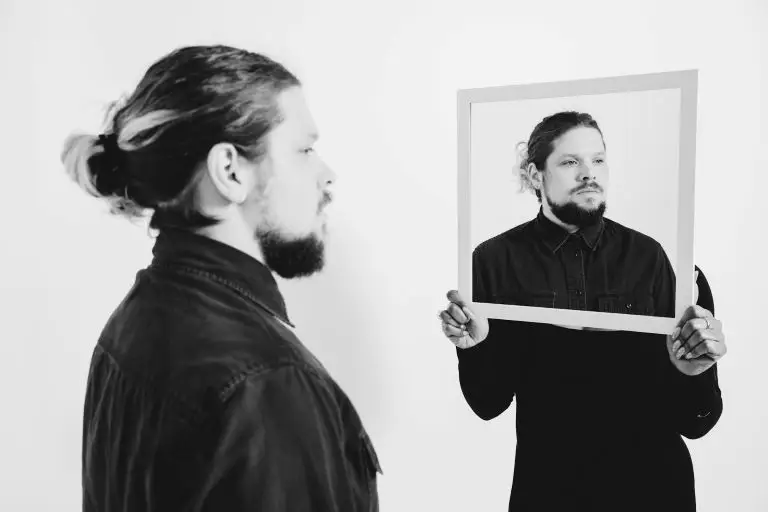The Mirror of Inner Knowing: How Spiritual Traditions Guide Us Home
What if the guidance you’re seeking isn’t “out there”, but quietly resting within you—waiting to be recognised?
In a world that often pulls us outward, it’s easy to forget that many of life’s most profound answers already live inside us. Across centuries and continents, spiritual traditions have offered mirrors for this inner knowing—reminders that the home we long for is not a destination, but a deep return to the self.
This post explores how these timeless teachings help us reconnect with our true nature—and why that matters now more than ever.
What is Inner Knowing?
Inner knowing is that quiet, intuitive sense of truth that doesn’t rely on logic or external validation. It’s not based on belief or doctrine—it’s a felt recognition, a direct experience of something deeply familiar and wise.
You might call it your soul’s compass. Others speak of it as intuition, the voice of the heart, or the light of consciousness. Whatever name you give it, it’s a part of you that already knows the way.
But here’s the catch: in daily life, it’s easy to lose touch with this. Busyness, doubt, fear, and noise can drown it out. That’s where spiritual traditions come in—not to give us something we don’t have, but to remind us of what’s already here.
The Role of Spiritual Traditions: Mirrors, Not Maps
Every authentic spiritual path—whether it’s rooted in Buddhism, Christianity, Sufism, Advaita, or indigenous earth wisdom—ultimately points us back to the same place: the still centre of our own being.
They do this not by giving us rigid answers, but by offering tools, stories, practices, and symbols that act as mirrors. These mirrors reflect our essence back to us. They help us see past our surface thoughts and roles, reconnecting us with something vast, loving, and timeless.
Let’s look at how different traditions reflect this homecoming:
1. Zen Buddhism: The Mirror of Emptiness
Zen master Dogen taught that “to study the self is to forget the self, and to forget the self is to be awakened by all things.” In Zen, meditation isn’t about achieving something—it’s about stripping away the noise to reveal what’s already true.
Zazen (seated meditation) becomes a mirror: you sit in stillness, and over time, the restless mind settles. What remains is not emptiness in the dull sense, but a luminous awareness. A return to presence. A glimpse of home.
2. Christian Mysticism: The Mirror of the Heart
The Desert Fathers and Mothers of early Christianity left behind cities and comforts to seek silence in the wilderness. Why? To clear away distraction and listen to the “still, small voice” of God within.
Christian mystics speak often of the “inner light” or “Christ within”—not as metaphor, but as real, transformative experience. Through contemplative prayer, they discovered that divine presence was not far off, but living in the quiet chambers of the heart.
3. Sufism: The Mirror of Love
In the Sufi tradition, love is the path and the mirror. Poets like Rumi and Hafiz wrote of the Beloved not as a distant deity, but as the very pulse of the soul. The more we polish the heart through devotion, the more clearly we see this divine reflection.
Rumi put it simply: “Your task is not to seek for love, but merely to seek and find all the barriers within yourself that you have built against it.”
4. Advaita Vedanta: The Mirror of Pure Awareness
Advaita means “not two.” It points to the essential oneness of all things. According to this non-dual philosophy, your true nature is already free—unchanging, unlimited, and ever-present.
Self-inquiry (like the question “Who am I?”) helps peel back the layers of identity until all that remains is awareness itself. In this tradition, the mirror isn’t something you look into—it’s the looking itself.
Why This Matters Today
Modern life often invites us into fragmentation: constant comparison, overthinking, digital distraction, and the illusion that happiness lies just around the corner—if only we work harder, look better, achieve more.
Spiritual traditions invite the opposite. They slow us down. They bring us inward. They help us trust what we feel, not just what we think. They remind us that we are not broken, and that the peace we seek is not dependent on conditions.
This isn’t about escaping life—it’s about meeting life more fully, from a place of grounded presence.
Coming Home: A Personal Practice
You don’t need to become a monk or mystic to begin this journey. The door opens from the inside. Here are three simple ways to start:
1. Create space for silence
Even five minutes a day of quiet sitting can reconnect you with your inner compass. Let go of trying to “do it right”. Just listen.
2. Reflect with compassion
Ask gentle questions: What feels true right now? What do I already know, beneath the noise? What am I being called toward?
3. Trust the stillness
Insight often arises not in the heat of effort, but in the calm that follows surrender. Rest in the awareness behind your thoughts.
Final Thoughts: You Are Already Home
The great paradox of the spiritual journey is this: you don’t travel to find yourself. You remember. You uncover. You return.
Spiritual traditions don’t give you a destination—they give you a mirror. And when you look into it with open eyes and a willing heart, you may just discover that everything you’ve been seeking has been here all along.
As the mystics say, the path home is not a path of distance, but of depth. May you find courage to look inward, and may the mirror of inner knowing reflect back the truth you’ve always carried.
Bonus Resources
Why not treat yourself to a Meditation Retreat in the beautiful Devon Countryside?
This post may also interest you: The Spiritual Wisdom of Letting Go
Best Wishes,
David.
© D. R. Durham, All rights reserved, 2025.




